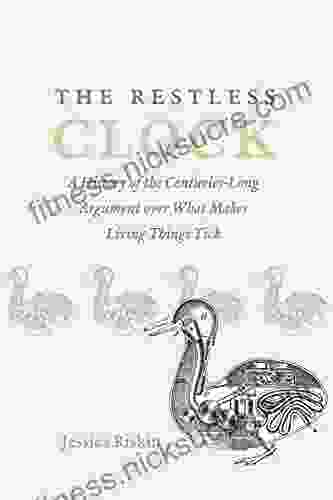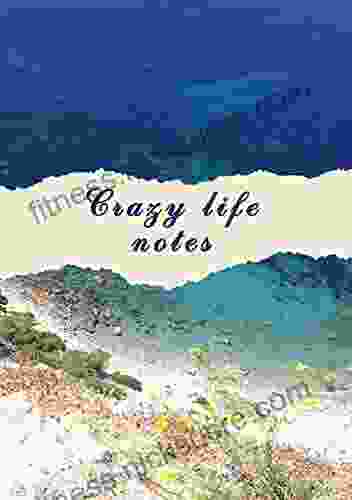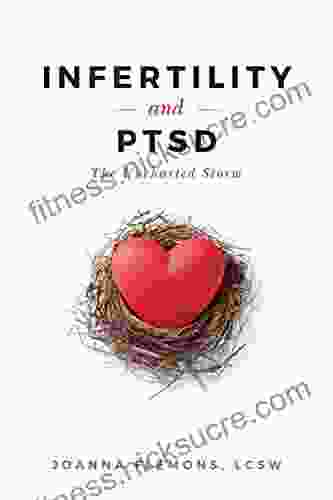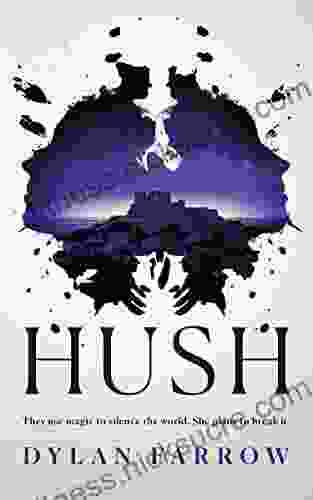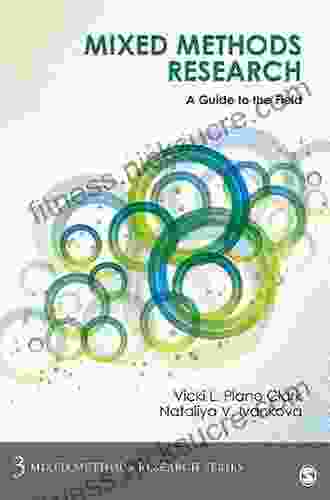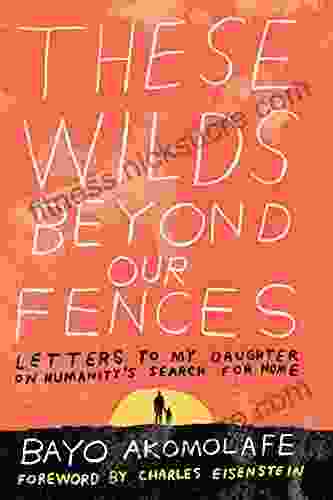The Centuries-Long Argument Over What Makes Living Things Tick: A History

For centuries, scientists have debated the nature of life. What is it that separates living things from non-living things? This is a question that has puzzled philosophers and scientists alike for centuries, and there is still no definitive answer.
In the early days of science, many people believed that life was simply a matter of complexity. The more complex an organism was, the more likely it was to be alive. This view was challenged by the German scientist Friedrich Wöhler, who in 1828 synthesized urea, a compound that was previously thought to be only produced by living organisms. This discovery showed that life was not simply a matter of complexity, and that there must be something else that separates living things from non-living things.
In the 19th century, scientists began to develop a more sophisticated understanding of the nature of life. They realized that living things are not simply complex machines, but rather complex systems that are able to maintain themselves in a state of equilibrium. This view was championed by the French scientist Claude Bernard, who argued that living things are characterized by their ability to resist entropy, or the tendency of all systems to break down over time.
4.6 out of 5
| Language | : | English |
| File size | : | 11000 KB |
| Text-to-Speech | : | Enabled |
| Screen Reader | : | Supported |
| Enhanced typesetting | : | Enabled |
| Word Wise | : | Enabled |
| Print length | : | 544 pages |
| Lending | : | Enabled |
In the 20th century, scientists began to develop a more molecular understanding of life. They discovered that all living things are made up of cells, and that cells are the basic unit of life. This discovery led to the development of the cell theory, which states that all living things are composed of cells, and that cells arise only from pre-existing cells.
The cell theory has been one of the most important discoveries in the history of science, and it has helped to revolutionize our understanding of life. However, it has also raised new questions about the nature of life. For example, what is it that makes a cell alive? Is it the presence of DNA? The ability to reproduce? The ability to metabolize?
These are questions that scientists are still debating today. However, the progress that has been made in the study of life over the past few centuries has given us a much better understanding of what it means to be alive.
The debate over what makes living things tick is a complex and fascinating one. It is a debate that has been going on for centuries, and it is a debate that will likely continue for centuries to come. However, the progress that has been made in the study of life over the past few centuries has given us a much better understanding of what it means to be alive.
4.6 out of 5
| Language | : | English |
| File size | : | 11000 KB |
| Text-to-Speech | : | Enabled |
| Screen Reader | : | Supported |
| Enhanced typesetting | : | Enabled |
| Word Wise | : | Enabled |
| Print length | : | 544 pages |
| Lending | : | Enabled |
Do you want to contribute by writing guest posts on this blog?
Please contact us and send us a resume of previous articles that you have written.
 Fiction
Fiction Non Fiction
Non Fiction Romance
Romance Mystery
Mystery Thriller
Thriller SciFi
SciFi Fantasy
Fantasy Horror
Horror Biography
Biography Selfhelp
Selfhelp Business
Business History
History Classics
Classics Poetry
Poetry Childrens
Childrens Young Adult
Young Adult Educational
Educational Cooking
Cooking Travel
Travel Lifestyle
Lifestyle Spirituality
Spirituality Health
Health Fitness
Fitness Technology
Technology Science
Science Arts
Arts Crafts
Crafts DIY
DIY Gardening
Gardening Petcare
Petcare Karen Mcquestion
Karen Mcquestion Kirstin Cronn Mills
Kirstin Cronn Mills Richard Moore
Richard Moore Jeff Sambur
Jeff Sambur Carl Erskine
Carl Erskine Sir Oliver Lodge
Sir Oliver Lodge Deborah Layton
Deborah Layton Penny Armstrong
Penny Armstrong Sue Tidwell
Sue Tidwell Damon Centola
Damon Centola Michael Vlessides
Michael Vlessides Ted Zeff
Ted Zeff Reina Donovan
Reina Donovan Lara Alcock
Lara Alcock Tasha Alexander
Tasha Alexander Steven Pressfield
Steven Pressfield Alina Adams
Alina Adams Anna Mathur
Anna Mathur Alice Roberts
Alice Roberts Pantea Kalhor
Pantea Kalhor Stuart Kauffman
Stuart Kauffman Anders Morley
Anders Morley Krissy Moehl
Krissy Moehl Lonely Planet
Lonely Planet C S Johnson
C S Johnson Helen Purperhart
Helen Purperhart Alexandria Moran
Alexandria Moran Alicia Puglionesi
Alicia Puglionesi Hollie Henderson
Hollie Henderson Carmen Martinez Jover
Carmen Martinez Jover Jerry Lynch
Jerry Lynch Judith Levin
Judith Levin Peter Flom
Peter Flom Philip Freeman
Philip Freeman Norman L Keltner
Norman L Keltner Ellen Kane
Ellen Kane Doc Norton
Doc Norton Joel Weinberger
Joel Weinberger Beccy Hands
Beccy Hands Lydia Wylie Kellermann
Lydia Wylie Kellermann Ryuu Shinohara
Ryuu Shinohara Kev Reynolds
Kev Reynolds Stephanie Mitchell Cnm Msn Dnp
Stephanie Mitchell Cnm Msn Dnp Michael J Behe
Michael J Behe Arthur Ashe
Arthur Ashe David Wolman
David Wolman Kevin Allen
Kevin Allen Jayson Georges
Jayson Georges Jim Walden
Jim Walden Helen Hodgson
Helen Hodgson Romina Garber
Romina Garber Penelope Freed
Penelope Freed Seabury Blair
Seabury Blair Stephen Ilg
Stephen Ilg Eric Siegel
Eric Siegel M Mitchell Waldrop
M Mitchell Waldrop Mark Rippetoe
Mark Rippetoe Karin Slaughter
Karin Slaughter Paige Wolf
Paige Wolf Arthur Lydiard
Arthur Lydiard Dr Heather L Johnson
Dr Heather L Johnson Jonny Bowden
Jonny Bowden Complete Test Preparation Inc
Complete Test Preparation Inc Alfred Tarski
Alfred Tarski Jeremy Hance
Jeremy Hance Lauren Harris
Lauren Harris Martha Shirk
Martha Shirk Tim Weston
Tim Weston Alice Borchardt
Alice Borchardt Amanda Ripley
Amanda Ripley Dan Jenkins
Dan Jenkins Michael Johnson
Michael Johnson Jen Noonan
Jen Noonan Peter Gandy
Peter Gandy Constantine A Balanis
Constantine A Balanis Dagny Scott Barrios
Dagny Scott Barrios Mary Beth Knight
Mary Beth Knight Erez Morabia
Erez Morabia Deborah Laird Meeks
Deborah Laird Meeks Sacha Black
Sacha Black Yehuda Lindell
Yehuda Lindell Jessica Riskin
Jessica Riskin Kimberly V Garner
Kimberly V Garner Ali Almossawi
Ali Almossawi Patrick Torsell
Patrick Torsell Erika Rogers Holland
Erika Rogers Holland Paul Asay
Paul Asay Aram Attarian
Aram Attarian Daniel Foor Phd
Daniel Foor Phd Alice Cooper
Alice Cooper Alice Steinbach
Alice Steinbach Thao Doan
Thao Doan Luke Reynolds
Luke Reynolds Kathy Gunst
Kathy Gunst Tim Maudlin
Tim Maudlin David Travis
David Travis David Gessner
David Gessner Peter Woit
Peter Woit Bernie Clark
Bernie Clark Andrew Yueh
Andrew Yueh Jose Albani
Jose Albani Courtney Kenney
Courtney Kenney Alexis Averbuck
Alexis Averbuck Thomas Horn
Thomas Horn Suzy Amis Cameron
Suzy Amis Cameron Robert A Monroe
Robert A Monroe Alexandra Heminsley
Alexandra Heminsley Robin Kaplan M Ed Ibclc
Robin Kaplan M Ed Ibclc Wade Davis
Wade Davis Sarah Melland
Sarah Melland Michaelbrent Collings
Michaelbrent Collings Eric Kaplan
Eric Kaplan David R Hawkins
David R Hawkins Heather Lang
Heather Lang Chip K
Chip K Alice Miller
Alice Miller Gordon England
Gordon England Michele Filgate
Michele Filgate Ally Nathaniel
Ally Nathaniel Michelle Rotteau
Michelle Rotteau Jessica Long
Jessica Long Matthew Bowling
Matthew Bowling Peter D Rogers
Peter D Rogers Richard Preston
Richard Preston Theodore Roosevelt
Theodore Roosevelt Hape Kerkeling
Hape Kerkeling Michael Patrick Ghiglieri
Michael Patrick Ghiglieri Craig S Brantley
Craig S Brantley Kynan Bridges
Kynan Bridges Scott Chimileski
Scott Chimileski John F Gilbey
John F Gilbey Neil Schulenburg
Neil Schulenburg G Pascal Zachary
G Pascal Zachary Christopher Mitchell
Christopher Mitchell Alfred Tennyson
Alfred Tennyson Jeremy Benson
Jeremy Benson Gary A Klein
Gary A Klein Neil J Salkind
Neil J Salkind Heather Baker
Heather Baker Joy S Kasson
Joy S Kasson Eric Barker
Eric Barker Suzanne Giesemann
Suzanne Giesemann Malina Malkani Ms Rdn Cdn
Malina Malkani Ms Rdn Cdn Thomas Hill
Thomas Hill Arthur Robert Harding
Arthur Robert Harding David J Goldman
David J Goldman Malala Yousafzai
Malala Yousafzai Jermaine Harris
Jermaine Harris Melissa Falkowski
Melissa Falkowski Whitney Miller
Whitney Miller Lisa Manterfield
Lisa Manterfield Chase Kosterlitz
Chase Kosterlitz Glade B Curtis
Glade B Curtis Alexandra Mayzler
Alexandra Mayzler Aris Spanos
Aris Spanos Roland Huntford
Roland Huntford William King
William King Emma Lock
Emma Lock Leslie Berlin
Leslie Berlin Kenn Bivins
Kenn Bivins Wendy Wood
Wendy Wood Alice Gorman
Alice Gorman Sam Thoma
Sam Thoma Wendy Currie
Wendy Currie Judy Murray
Judy Murray Lauren Drain
Lauren Drain Alice Boyes Ph D
Alice Boyes Ph D Joseph Henrich
Joseph Henrich Roy Barth
Roy Barth Ali Katz
Ali Katz Frank White
Frank White Alexey Zimarev
Alexey Zimarev K T Hanna
K T Hanna Shaun David Hutchinson
Shaun David Hutchinson Eric Mantle
Eric Mantle Mitchell P Jones
Mitchell P Jones Jane Gildart
Jane Gildart Virgil Herring
Virgil Herring Jessica Goodman
Jessica Goodman Alfie Kohn
Alfie Kohn Eric Layton
Eric Layton John Bemelmans Marciano
John Bemelmans Marciano Ashley Mardell
Ashley Mardell German Raigosa
German Raigosa Alice Beck Kehoe
Alice Beck Kehoe Mark Zondo
Mark Zondo Jon Moxley
Jon Moxley Tracy Anderson
Tracy Anderson Alfred North Whitehead
Alfred North Whitehead Michael Vassallo
Michael Vassallo Laura Katz
Laura Katz Carol Chaitkin
Carol Chaitkin America S Test Kitchen
America S Test Kitchen Milly Buonanno
Milly Buonanno Li Ming Lee
Li Ming Lee Lindsay Grace
Lindsay Grace Alexandra Robbins
Alexandra Robbins Crysta Mchenry
Crysta Mchenry Lawrence Weschler
Lawrence Weschler Guy Hunter Watts
Guy Hunter Watts Nancy Carpentier Brown
Nancy Carpentier Brown Joe Dolio
Joe Dolio Rosary O Neill
Rosary O Neill Heinrich Cornelius Agrippa Von Nettesheim
Heinrich Cornelius Agrippa Von Nettesheim Richard H Coop
Richard H Coop Dawn Brookes
Dawn Brookes Charles Hainsworth
Charles Hainsworth Bob Toski
Bob Toski Melia Keeton Digby
Melia Keeton Digby Charlie N Holmberg
Charlie N Holmberg Ken Mink
Ken Mink John Abramson
John Abramson Randy Spencer
Randy Spencer Brent Warner
Brent Warner Martha Sears
Martha Sears Alice Horton
Alice Horton Michael Thorp
Michael Thorp Jim Vance
Jim Vance Rob Price
Rob Price Karl Wiegers
Karl Wiegers Les Adams
Les Adams Scott Linden
Scott Linden Frank C Hawkins
Frank C Hawkins Peter Stark
Peter Stark Robin G Jordan
Robin G Jordan Tracy Becker
Tracy Becker Emily Riehl
Emily Riehl Sarah Rayner
Sarah Rayner Rails To Trails Conservancy
Rails To Trails Conservancy David J Rothman
David J Rothman Robert Kagan
Robert Kagan Erica Lyon
Erica Lyon Robert L Kelly
Robert L Kelly Mary Kay Andrews
Mary Kay Andrews Andy Kirkpatrick
Andy Kirkpatrick George Takei
George Takei Yvette Marquez Sharpnack
Yvette Marquez Sharpnack Penelope Leach
Penelope Leach Robert Zimmerman
Robert Zimmerman Ron Ritchhart
Ron Ritchhart Katie Walsh Flanagan
Katie Walsh Flanagan Sarah A Chrisman
Sarah A Chrisman Jean Chatzky
Jean Chatzky Jonathan Carroll
Jonathan Carroll Alexis L Boylan
Alexis L Boylan Carlton Kirby
Carlton Kirby Alexei Yurchak
Alexei Yurchak Lyanda Lynn Haupt
Lyanda Lynn Haupt Daniel Goleman
Daniel Goleman Mike Dauplaise
Mike Dauplaise Samantha Cattach
Samantha Cattach Elizabeth Clare Prophet
Elizabeth Clare Prophet Sammy Hagar
Sammy Hagar Christopher Steiner
Christopher Steiner Nancy Roe Pimm
Nancy Roe Pimm William G Tapply
William G Tapply George S Fichter
George S Fichter Wayne Stewart
Wayne Stewart Hicham And Mohamed Ibnalkadi
Hicham And Mohamed Ibnalkadi Alice Sebold
Alice Sebold Matthew Silverman
Matthew Silverman Jeff Cooper
Jeff Cooper Arno Ilgner
Arno Ilgner Ruby Vincent
Ruby Vincent Stacey L Bradford
Stacey L Bradford Steve O Hearn
Steve O Hearn Ali Novak
Ali Novak Natalie Angier
Natalie Angier John Pagano
John Pagano Sabina Khan
Sabina Khan David Watson
David Watson Paul Green
Paul Green Avi Gordon
Avi Gordon Douglas Starr
Douglas Starr Whitney Ferre
Whitney Ferre Zar Petkov
Zar Petkov Patricia A Mckillip
Patricia A Mckillip Vishal Sambharya
Vishal Sambharya Larry Baush
Larry Baush Oivind Andersson
Oivind Andersson Alice Jolly
Alice Jolly Eileen Edna Power
Eileen Edna Power Mario Cleves
Mario Cleves Mark Sisson
Mark Sisson Michael R Lindeburg
Michael R Lindeburg Diana Hudson
Diana Hudson Nick Mitchell
Nick Mitchell Penny Warner
Penny Warner David A Ebert
David A Ebert Frank J Tipler
Frank J Tipler Michael Cave
Michael Cave Alexandra Kennon
Alexandra Kennon Shaka Senghor
Shaka Senghor Brigid Moss
Brigid Moss Alexandra Brodsky
Alexandra Brodsky Raymond Barrett
Raymond Barrett Carmindy
Carmindy Kathy Barker
Kathy Barker Rebecca Schwarzlose
Rebecca Schwarzlose Tom Mackie
Tom Mackie Thomas F King
Thomas F King Peter Collier
Peter Collier Tim R Swartz
Tim R Swartz Mike Westin
Mike Westin Charles Murray
Charles Murray Alicia Ranoldo
Alicia Ranoldo Nora Roberts
Nora Roberts Karin Bojs
Karin Bojs Dianna L Van Blerkom
Dianna L Van Blerkom Alexia Leachman
Alexia Leachman Jenna Ortega
Jenna Ortega Valora Conciencia En Los Medios
Valora Conciencia En Los Medios Lola Glass
Lola Glass Mike Commito
Mike Commito Robert Scott
Robert Scott Bayo Akomolafe
Bayo Akomolafe Elan Golomb
Elan Golomb David Maidment
David Maidment Howard Pyle
Howard Pyle Louis Borgenicht
Louis Borgenicht John Madieu
John Madieu Gabriel Aluisy
Gabriel Aluisy Adrian Dingle
Adrian Dingle Donna Bozzo
Donna Bozzo Bjorn Kjellstrom
Bjorn Kjellstrom Crystal Waltman
Crystal Waltman Patti M Hummel
Patti M Hummel Michael Clark
Michael Clark Jay Golden
Jay Golden Nick Kalyn
Nick Kalyn Vicki Manning
Vicki Manning Executivegrowth Summaries
Executivegrowth Summaries Matilda Betham
Matilda Betham Duncan Hines
Duncan Hines Karyl Rickard
Karyl Rickard Stephen Altschuler
Stephen Altschuler David Armitage
David Armitage Paul Stephenson
Paul Stephenson Lara Carter
Lara Carter Jodi L Weinstein
Jodi L Weinstein John Lohn
John Lohn Paul Wilmott
Paul Wilmott Terry Marsh
Terry Marsh Robert Lusetich
Robert Lusetich Ali Velez Alderfer
Ali Velez Alderfer Phillip Starr
Phillip Starr Joeanna Rebello Fernandes
Joeanna Rebello Fernandes Nick Littlehales
Nick Littlehales Kathleen Mcauliffe
Kathleen Mcauliffe Lance Akiyama
Lance Akiyama Leslie Anthony
Leslie Anthony Ben Applebaum
Ben Applebaum Rin Chupeco
Rin Chupeco Michael Mcteigue
Michael Mcteigue Mark C Purcell
Mark C Purcell Sarah K L Wilson
Sarah K L Wilson Joe Proulx
Joe Proulx Susan Jules
Susan Jules Alexandra Bracken
Alexandra Bracken Alfred Begum
Alfred Begum Eleanor Drago Severson
Eleanor Drago Severson Alice Kuipers
Alice Kuipers Joshua R Eyler
Joshua R Eyler Alexis C Bunten
Alexis C Bunten Carol Ekarius
Carol Ekarius Sharon Powell
Sharon Powell David Byrne
David Byrne Sir E A Wallis Budge
Sir E A Wallis Budge Mike Wallace
Mike Wallace Corky Pollan
Corky Pollan Patrick Ness
Patrick Ness Dan Aadland
Dan Aadland Stephen Blyth
Stephen Blyth Mark Harris
Mark Harris Carolyn Highland
Carolyn Highland David A Askay
David A Askay Peggy Vincent
Peggy Vincent John Pirillo
John Pirillo Emily Levesque
Emily Levesque Gen Tanabe
Gen Tanabe Rev Cain
Rev Cain Hank D Haney
Hank D Haney Sarah Bolitho
Sarah Bolitho Jonathan Weiner
Jonathan Weiner Lynne Robinson
Lynne Robinson Heidi Murkoff
Heidi Murkoff Mikel Jollett
Mikel Jollett Paul H Frampton
Paul H Frampton Mary Cholmondeley
Mary Cholmondeley Adah Bakalinsky
Adah Bakalinsky Dr C
Dr C Matthew Cowsert
Matthew Cowsert Becca Maberly
Becca Maberly Alexia Purdy
Alexia Purdy Jill Simonian
Jill Simonian George Beinhorn
George Beinhorn John G West
John G West Udo Schaefer
Udo Schaefer Normandi Ellis
Normandi Ellis Rachel Vitale
Rachel Vitale Zac Unger
Zac Unger Josh Peter
Josh Peter Ian Morris
Ian Morris Frederick Courteney Selous
Frederick Courteney Selous Mark Kaplan
Mark Kaplan Bear Grylls
Bear Grylls David G Alciatore
David G Alciatore Kathryn A Bard
Kathryn A Bard Pottermore Publishing
Pottermore Publishing Grackle Pigeon
Grackle Pigeon Daniel M Davis
Daniel M Davis Ernie Palladino
Ernie Palladino Alexey Osadchuk
Alexey Osadchuk Alexandra Fuller
Alexandra Fuller Said Hasyim
Said Hasyim Daniel Young
Daniel Young Alice Nobile
Alice Nobile Peter J Hotez
Peter J Hotez Alice Walker
Alice Walker Mark Elbroch
Mark Elbroch Brian D Ambrosio
Brian D Ambrosio Philip Rossoni
Philip Rossoni Nel Noddings
Nel Noddings Anymom
Anymom Dean Pohlman
Dean Pohlman Bassem R Mahafza
Bassem R Mahafza Jack Batten
Jack Batten Sigurd F Olson
Sigurd F Olson Alice Scordato
Alice Scordato Alice June
Alice June Dustin Vaughn Warncke
Dustin Vaughn Warncke Lynne Cox
Lynne Cox Nic Sheff
Nic Sheff Clay Bonnyman Evans
Clay Bonnyman Evans Ryan Guldberg
Ryan Guldberg Stacy Tornio
Stacy Tornio Steve Parker
Steve Parker Pam Withers
Pam Withers Margaret Starbird
Margaret Starbird Jason Selk
Jason Selk Minda Harts
Minda Harts Alexandra M Levitt
Alexandra M Levitt Alexis Marie Chute
Alexis Marie Chute Anthony Legins
Anthony Legins Henry Gilbert
Henry Gilbert Roddy Scheer
Roddy Scheer Alfred Lambremont Webre
Alfred Lambremont Webre Andrew Zimmern
Andrew Zimmern Susan Wise Bauer
Susan Wise Bauer Amy Pickar Abernethy
Amy Pickar Abernethy Frank Amthor
Frank Amthor Gary Wayne
Gary Wayne Scott Weems
Scott Weems Jay Greenberg
Jay Greenberg Mary Johnson
Mary Johnson Karin Perry
Karin Perry Matthew Dektas
Matthew Dektas Thomas Hund
Thomas Hund Laura Gauld
Laura Gauld Jim Mclean
Jim Mclean Keisuke Andrew
Keisuke Andrew Robert P Crease
Robert P Crease Darrin Gee
Darrin Gee John C Hudson
John C Hudson Ali Wong
Ali Wong David G Kingdon
David G Kingdon Alfred Edersheim
Alfred Edersheim Allison Saft
Allison Saft Devyn Stone
Devyn Stone Hans Rosling
Hans Rosling Shannon Messenger
Shannon Messenger Dylan Farrow
Dylan Farrow Veronica O Keane
Veronica O Keane Karen Kovacs
Karen Kovacs Susan Albers
Susan Albers Joshua Coleman Phd
Joshua Coleman Phd
Light bulbAdvertise smarter! Our strategic ad space ensures maximum exposure. Reserve your spot today!
 Noah BlairFollow ·18.8k
Noah BlairFollow ·18.8k Kenzaburō ŌeFollow ·5.6k
Kenzaburō ŌeFollow ·5.6k Efrain PowellFollow ·13.1k
Efrain PowellFollow ·13.1k Samuel Taylor ColeridgeFollow ·2.8k
Samuel Taylor ColeridgeFollow ·2.8k W.B. YeatsFollow ·12.2k
W.B. YeatsFollow ·12.2k Paul ReedFollow ·15.1k
Paul ReedFollow ·15.1k John ParkerFollow ·10.7k
John ParkerFollow ·10.7k Robert BrowningFollow ·19k
Robert BrowningFollow ·19k

 Derek Bell
Derek BellReflections For Your Heart and Soul: A Journey of...
In the depths of...
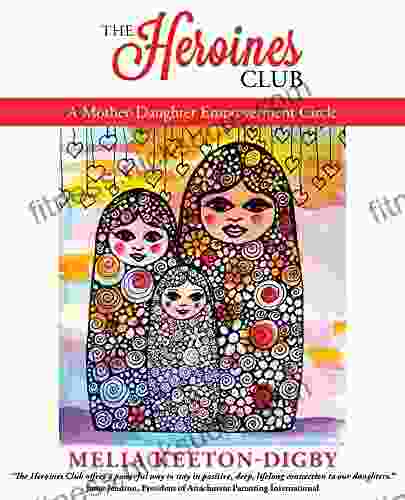
 Joseph Conrad
Joseph ConradThe Heroines Club: Empowering Mothers and Daughters
The Heroines Club...
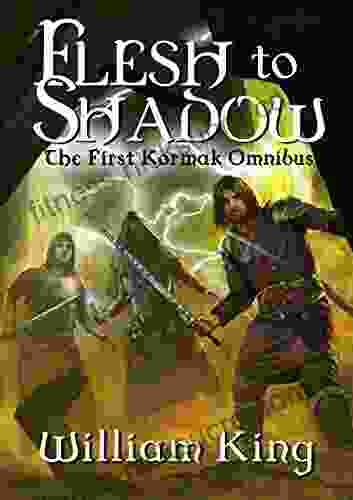
 Milan Kundera
Milan KunderaThe First Kormak Omnibus: A Literary Expedition into the...
Prepare to embark on an extraordinary literary...
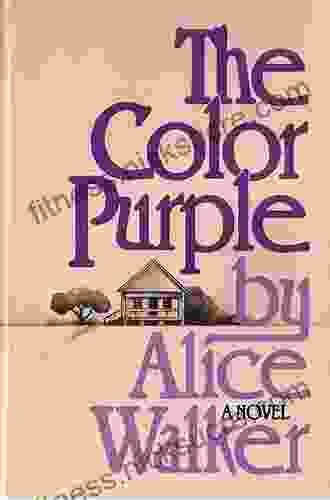
 W.H. Auden
W.H. AudenThe Color Purple: A Journey of Love, Resilience, and...
The Color Purple, a groundbreaking novel...
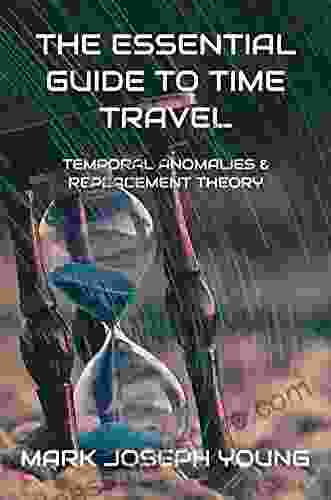
 Harvey Hughes
Harvey HughesTemporal Anomalies and Replacement Theory: Unraveling the...
: The Enigma of Time Time,...
4.6 out of 5
| Language | : | English |
| File size | : | 11000 KB |
| Text-to-Speech | : | Enabled |
| Screen Reader | : | Supported |
| Enhanced typesetting | : | Enabled |
| Word Wise | : | Enabled |
| Print length | : | 544 pages |
| Lending | : | Enabled |


